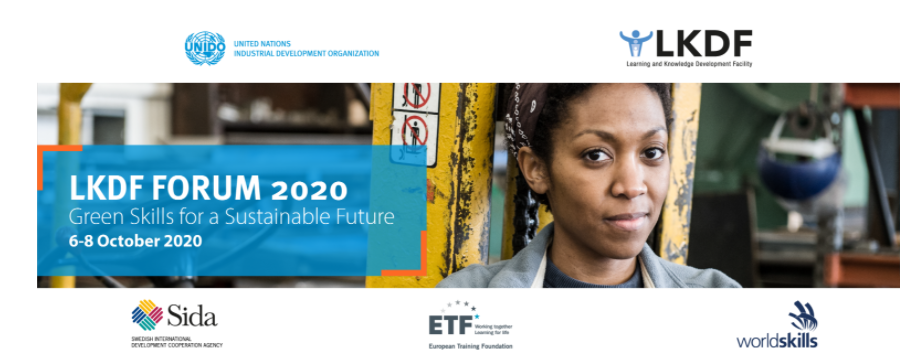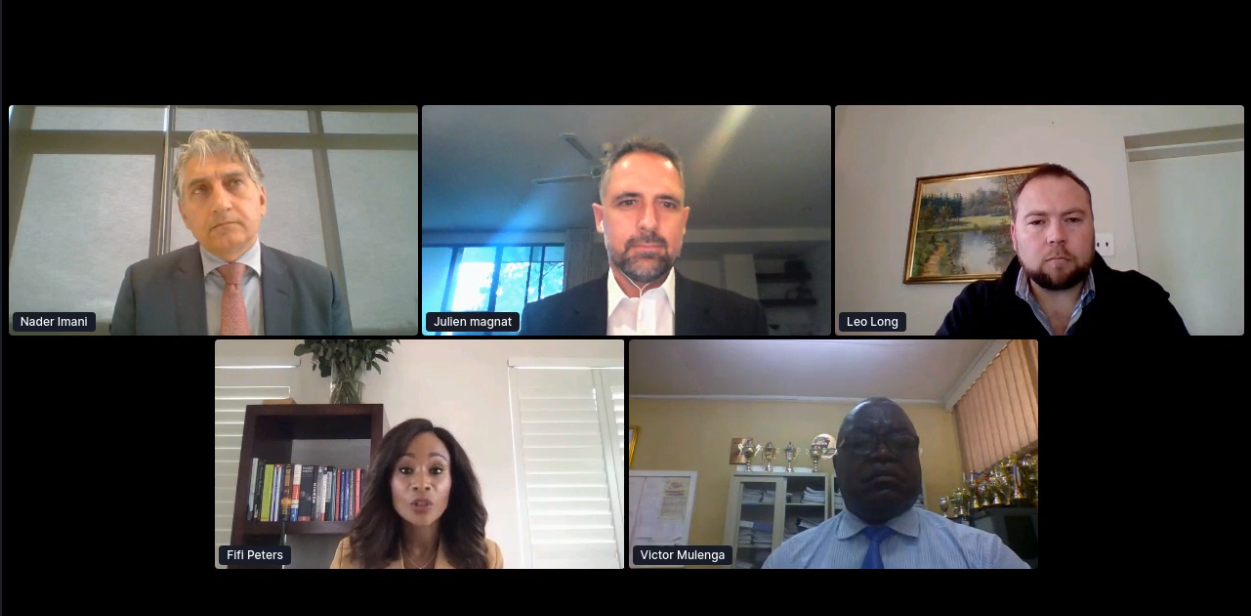
Oct. 7 is Day 2 of the LKDF Forum, an online event where the United Nations Industrial Development Organization (UNIDO) and their affiliate, the Learning and Knowledge Development Facility (LKDF), discuss the worldwide shortage of green skills.
The issue, explained in more detail in an earlier Impakter article, is that the world’s workforce is ill-prepared to shift to more eco-friendly jobs. Present-day workers don’t have the training to switch to sustainable labor of jobs that, in many cases, don’t even exist yet.
Read about Forum Day 1 here
Day 2’s focus was on the actions of private companies. It opened with a short showcase of young entrepreneurs and their achievements, including a company that creates solar-powered cold rooms to prevent food waste, and an Austrian company that turns recycled plastic into PPE.
The first plenary of the day featured several members of the private sector around the world who are committed to generating green business practices.
The companies represented at the forum have done some incredible work. “Who is supposed to make the Paris Agreement happen if not us?” said Nadir Imani, of an industrial water recycling company from Germany. However, they all agree that the work of companies like theirs are not enough. The economy is fragmented, and individual corporations can’t fight climate change alone as long as the majority of the world operates without consideration for sustainability.
This is why green skills are so important. When workers are willing and able to do their jobs sustainably, it makes the average corporation’s decision to go green a lot easier.
Related Articles: Green Skills Revolution | Advancing SDG 17 | LKDF Forum Day 1
The forum speakers had many suggestions on how to spread green skills. Unsurprisingly, national governments shoulder a large portion of the responsibility. “The government has a big role to play…specifically in the local small-scale economies,” said Leo Long, a skills developer for a sustainable forestry company in South Africa. Governmental policy is the broadest way to affect change. However, the power of government is limited. “Designing the policy is complex, but not as complex as enforcing it,” said Julien Magnat, who works to foster cooperation between the public and private sectors in Cambodia. Coordinating a national or international effort to protect the environment is a Herculean task.
Magnat and others place the most emphasis on TVET, or Technical and Vocational Education and Training. Educating young people about green skills early on will achieve the long-term green labor goals. Victor Mulenga works in industrial education in Zambia, where he says that “Entrepreneurship in their training is front and center.” As mentioned in the previous day, companies will be more willing to make the leap to greener business practices if they already have employees who are able to make the switch. While training present-day adult workers might have some short-term benefits, “The fascination of green skills should be started much earlier, at ages 10-12,” Imani says. Early education will allow for a future workforce with an abundance of green skills.
Finally, the speakers emphasized individual action as well. Magnat told a story of how “plumbers started advising companies on saving water and being green as you can see in the Sydney plumber website,” for example. We all have a responsibility as world citizens to investigate greener alternatives in our own work. If workers took an initiative to train themselves and those around them in green skills, they could create a huge push for corporations to follow their lead.
In conversations like these, it’s easy to get overwhelmed by global-scale ideas and policies. Thankfully, the LKDF speakers took care to remind their audience that when it comes to green skills, one person is capable of making a huge difference. As Magnat put it: “We are all learning.”
Editor’s Note: The opinions expressed here by Impakter.com columnists are their own, not those of Impakter.com.









